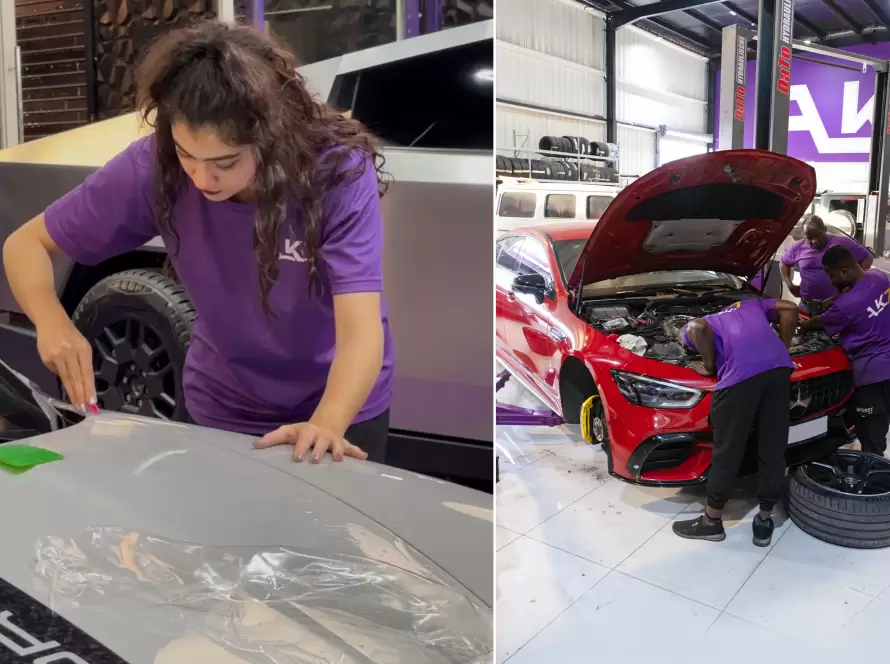Owning a car is a long-term investment that requires routine maintenance to ensure optimal performance, safety, and longevity. Regular checkups and inspections not only prevent costly repairs down the road but also improve fuel efficiency, engine health, and overall driving experience. In this blog, we’ll cover the must-do regular checkups that every car owner should perform to keep their vehicle running smoothly.
Sed ut perspiciatis, unde omnis iste natus error sit voluptatem accusantium doloremque laudantium, totam rem aperiam eaque ipsa, quae ab illo inventore veritatis et quasi architecto beatae vitae dicta sunt, explicabo.
1. Oil and Filter Changes
One of the most essential checkups for better car operation is regular oil and filter changes. Motor oil lubricates the engine, reduces friction, and prevents overheating. Over time, oil breaks down and becomes less effective, which can lead to engine damage.
Benefits: Extends engine life, improves fuel efficiency, and keeps your engine clean.
Recommendation: Change your oil every 5,000 to 7,500 miles (depending on your vehicle and oil type).
2. Tire Pressure and Tread Inspection
Your tires are critical for vehicle safety and performance. Checking tire pressure and tread depth regularly helps prevent blowouts, improves handling, and boosts fuel efficiency.
- Recommendation: Check tire pressure monthly and before long trips. Inspect tread depth every 6,000 miles.
- Benefits: Ensures better traction, improves fuel economy, and extends tire lifespan.
3. Brake System Check
Brakes are vital for your safety and should be inspected regularly to ensure they’re working properly. Over time, brake pads wear down, and brake fluid can degrade, affecting your car’s stopping ability.
- Recommendation: Have your brake pads, rotors, and brake fluid checked every 10,000 miles or during routine services.
- Benefits: Increases driving safety, reduces wear on brake components, and prevents accidents.
4. Battery Health Inspection
Your car’s battery powers the electrical system, and without it, your car won’t start. Inspecting the battery for corrosion, testing its charge, and ensuring it’s properly secured are all crucial for uninterrupted car operation.
- Recommendation: Test your battery twice a year, especially before extreme weather seasons.
- Benefits: Prevents unexpected breakdowns, ensures consistent vehicle starts, and prolongs battery life.
5. Fluid Levels Check
Cars rely on various fluids to operate efficiently. Regularly checking and topping off these fluids is key to preventing mechanical issues:
- Engine Oil: Lubricates engine parts.
- Brake Fluid: Ensures the brake system works properly.
- Transmission Fluid: Allows smooth gear shifts.
- Coolant: Prevents engine overheating.
- Power Steering Fluid: Enables easier steering.
- Recommendation: Check fluid levels every 3 months or as per your owner’s manual.
- Benefits: Prevents overheating, transmission issues, and other system failures.
Regular car checkups are essential for ensuring better car operation, safety, and longevity.
6. Air Filter Replacement
The air filter keeps dirt, dust, and debris from entering your engine, which can affect performance and fuel economy. Over time, the filter can get clogged, making your engine work harder.
- Recommendation: Replace the air filter every 12,000 to 15,000 miles.
- Benefits: Improves engine performance, boosts fuel efficiency, and prolongs engine life.
7. Alignment and Suspension Check
Over time, daily driving can cause your car’s alignment and suspension to shift, leading to uneven tire wear, poor handling, and a less comfortable ride. A well-aligned vehicle operates more efficiently and safely.
- Recommendation: Get your car’s alignment and suspension checked annually or after hitting a pothole.
- Benefits: Enhances driving comfort, improves tire longevity, and ensures better handling.
8. Lights and Wipers
Proper visibility is crucial for safe driving, especially at night or during bad weather. Regularly checking your headlights, taillights, turn signals, and wiper blades ensures that you can see and be seen on the road.
- Recommendation: Inspect lights and wipers every 6 months and replace wiper blades annually.
- Benefits: Improves visibility, enhances driving safety, and reduces accident risk.
9. Belts and Hoses Inspection
Your car’s belts (like the timing and serpentine belt) and hoses (for coolant, power steering, etc.) play crucial roles in your engine’s operation. Cracks, leaks, or wear can lead to engine failure or other major issues.
- Recommendation: Inspect belts and hoses every 10,000 miles or during scheduled maintenance.
- Benefits: Prevents engine overheating, improves system efficiency, and reduces the risk of breakdowns.
10. Exhaust System Check
Your car’s exhaust system is responsible for filtering out harmful emissions and ensuring your car runs quietly and efficiently. Over time, rust or wear can damage the exhaust, leading to decreased performance and increased noise.
- Recommendation: Inspect the exhaust system every 12,000 miles.
- Benefits: Reduces harmful emissions, improves fuel economy, and ensures a quieter ride.



